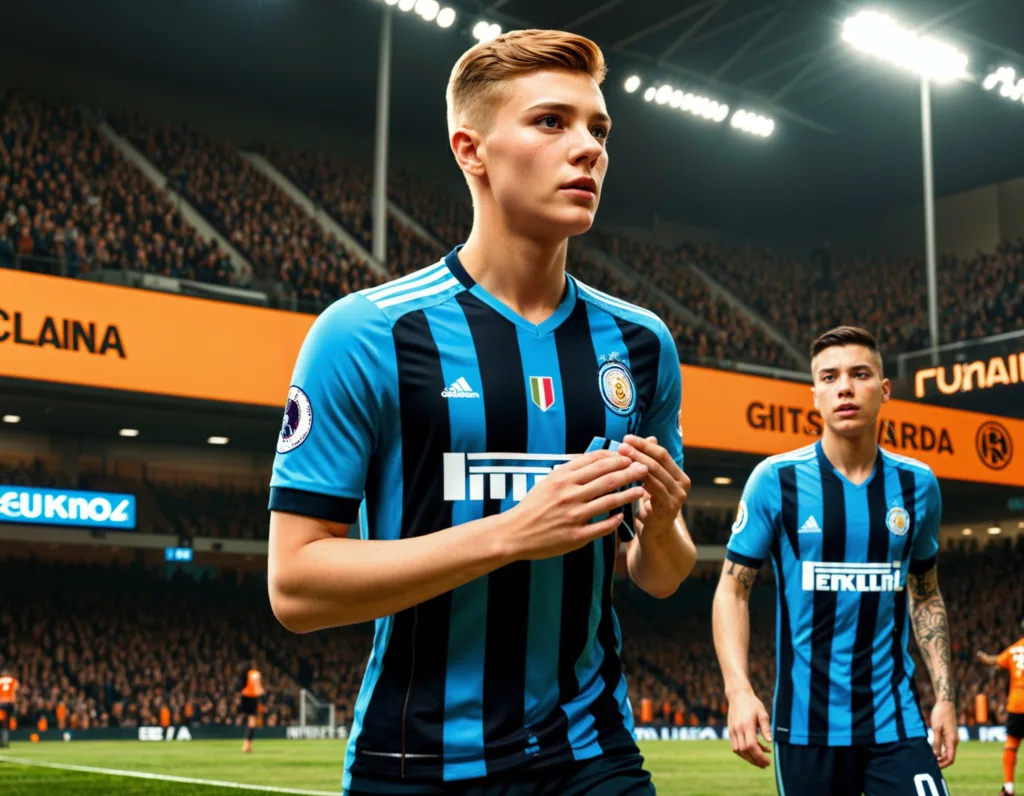Unlock the secrets to successfully negotiating a player’s first professional contract with our comprehensive guide, covering everything from understanding value to planning for the future.
Player’s First Professional Contract: Basics
Negotiating a player’s first professional contract is a landmark event, setting the trajectory for their future in sports. It’s a complex process, blending financial, developmental, and legal considerations to ensure a mutually beneficial agreement between the player and the club. This article delves into the intricacies of these negotiations, offering insights and strategies to navigate this pivotal moment successfully.
Player’s First Professional Contract: Understanding Player Value
Performance Analysis
Evaluating a player’s performance through data and video analysis is crucial. Attributes such as speed, technical skills, and tactical awareness must be quantified to understand the player’s unique value.
Beyond raw statistics, consistency under pressure, adaptability to different formations, and injury history also play a role in shaping long-term potential. Clubs often look at progression curves—how much a player has improved season by season—and project future growth. Feedback from coaches, scouts, and even sports psychologists can provide additional context to the numbers, ensuring that both strengths and areas for improvement are clearly identified.
Market Comparison and Benchmarking
Comparing the player’s metrics with those of peers in similar positions and age groups provides a baseline for negotiations, ensuring the player’s market value is accurately reflected in the contract terms.
Benchmarking includes looking at recent transfers, wage levels in comparable leagues, and potential resale value. For young players, clubs may also weigh factors such as international call-ups, academy background, and media visibility, which can influence commercial appeal.
Agents and advisors often prepare detailed reports showing how the player ranks against current squad members and external targets, strengthening the case for fair salary, bonuses, and performance clauses in the contract.
Player’s First Professional Contract: Long-Term Development Considerations
Development Plans and Career Progression
A clear plan for the player’s development, including training, playing time, and exposure to competitive matches, is essential for long-term growth.
Individualized support such as mentorship from senior players, tailored fitness programs, and access to sports psychologists can accelerate adaptation to professional demands. Additionally, structured opportunities like loan moves, gradual integration into the first team, and participation in international youth competitions provide valuable experience. Clubs may also outline educational and off-field development initiatives, ensuring the player builds resilience and leadership skills alongside athletic performance.
Support Structures for Personal Growth
Contracts should encompass provisions for education and personal development, especially for young players transitioning to professional levels.
Player’s First Professional Contract: Financial Negotiations
Salary, Bonuses, and Incentives
A fair base salary, complemented by performance-related bonuses, aligns the player’s financial compensation with their on-field contributions.
Release Clauses and Future Security
Incorporating release clauses provides flexibility for the player, balancing their career aspirations with the club’s interests.
Protection Against Injuries
Injury Clauses and Player Welfare
Contracts must offer protection in the event of injury, guaranteeing salary and providing comprehensive medical support.
Insurance and Career-Threatening Injury Provisions
Discussing insurance options ensures the player’s financial stability, covering potential career-threatening injuries.
Player’s First Professional Contract: Integrating into Team Dynamics
The contract should outline the player’s pathway to first-team football, setting clear milestones and performance targets.
Integration is not only about match appearances but also about understanding the club’s culture, values, and playing philosophy. Mentorship programs with experienced teammates, clear communication from coaching staff, and inclusion in team-building activities can accelerate adaptation.

In addition, clauses related to performance incentives, leadership development, and participation in preseason tours or training camps help ensure the player feels part of the club’s long-term vision while steadily progressing toward a permanent first-team role.
Loan Opportunities for Experience
Potential loan arrangements can offer valuable playing experience, contributing to the player’s development.
Carefully selected loan moves—whether to lower-division clubs, foreign leagues, or teams with a compatible playing style—allow the player to gain consistent minutes, adapt to different tactical systems, and develop resilience under varied conditions.
Well-structured loan clauses may also include guaranteed playing time, clear feedback mechanisms from the loan club to the parent club, and recall options if the move does not serve the player’s growth. Exposure to diverse football environments not only sharpens technical and tactical skills but also enhances maturity, and market visibility.
The Role of Legal Representation
Importance of Professional Advice
Utilizing experienced agents or legal representatives is vital to protect the player’s interests and ensure fair contract terms.
Ensuring Fair and Equitable Terms
The goal is a balanced contract that reflects the player’s potential while remaining sustainable for the club.
Planning for the Post-Playing Career
Provisions for coaching qualifications or further education prepare players for life after their playing days.
Many clubs now encourage players to pursue badges, certifications, or university courses alongside their careers, ensuring a smoother transition once retirement comes. Networking opportunities—such as involvement in community projects, ambassador roles, or club academies—also help players build valuable relationships outside the pitch.
Additionally, financial literacy programs, mentorship from retired professionals, and support for entrepreneurial ventures can provide players with the tools to manage wealth responsibly and open new career paths after football.
Conclusion
Negotiating a first professional contract is more than signing for money. It is about building trust and setting a clear path for the future. A good contract protects the player, supports development, and gives fair rewards for effort. For the club, it secures a young talent and invests in long-term success. When both sides focus on growth, balance, and opportunity, the agreement becomes the start of a strong and rewarding career.









